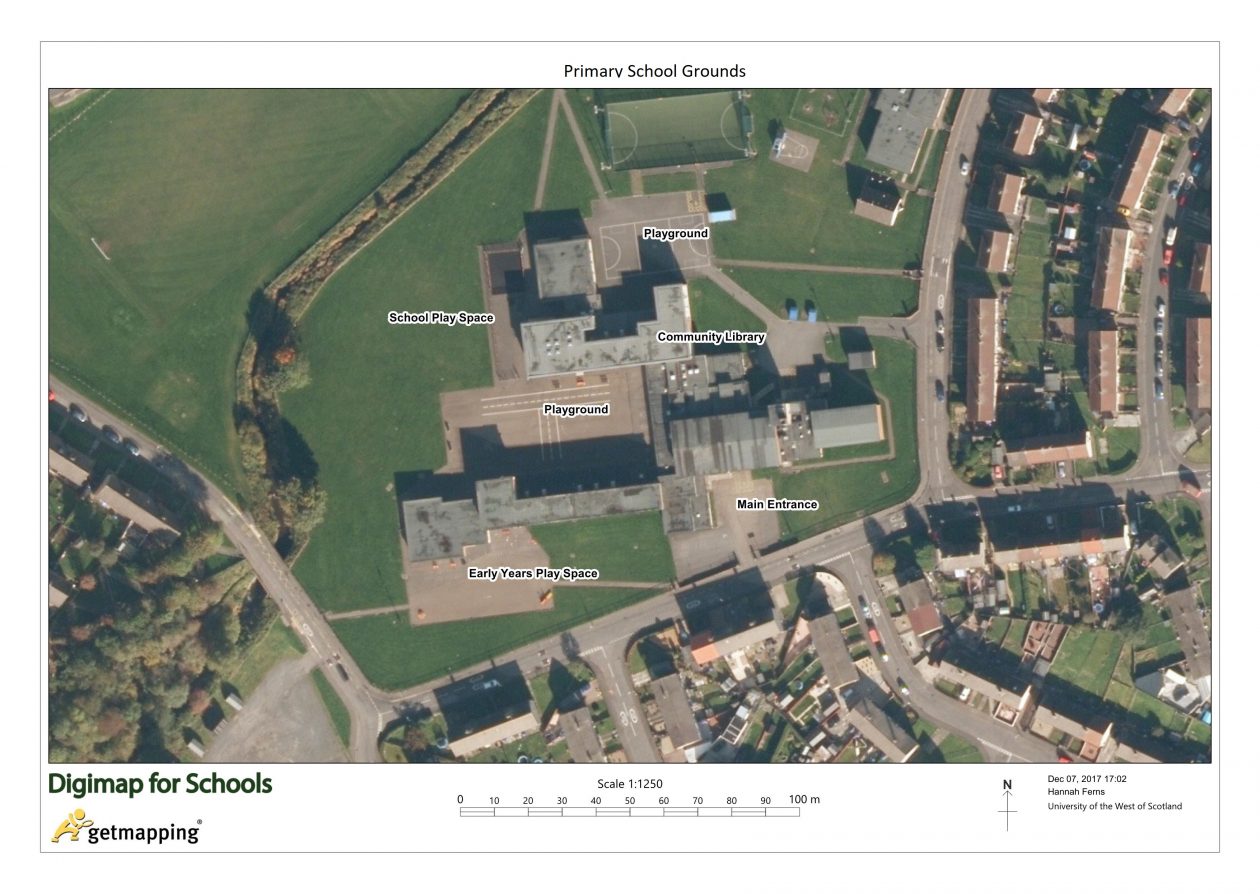On my first 6 serial days, I had the opportunity to explore how my school engages with sustainable development education.
Map of School Grounds

Evidence of Existing Engagement
Overall, I did not have the chance to witness much in terms of existing engagement on a practical level.
What I did manage to see was evidence of:
- Eco Monitors in each class
- Eco Committee
- Areas outside set up for outdoor learning initiatives
- Planters which had been set up through outdoor learning
- A class activity setting up a bird feeder outside in the school grounds
- The school Science and Eco policies.
As the Eco Schools programme is pupil led, each class has an eco monitor who is a member of the school’s Eco Committee. The Eco Committee, as per the programme, discuss ways in which the school can work towards becoming more eco friendly, and take part in relevant activities, which I have not had the opportunity to experience as of yet. There are, to my knowledge, also students who take turns in monitoring for litter in the playground and making sure the grounds are litter-free.
Through discussion with one of the class teachers, who demonstrated great enthusiasm for outdoor learning and activities, I learned that the school had been working on developing their own outdoor learning classroom space. This had involved a sloping area of land, which had hedges planted around to form a border, with some trees and other plants. The aim was for this space to be developed into an outdoor learning space, but before it could be developed further the teacher was moved to non-contact time rather than leading a class, so the project was incomplete. Now, however, as they are currently leading a class again, they are working towards re-kindling the project, and some other initiatives. In the last few weeks, this class has undertaken a bird feeder project, where they have set it up in the playground and will attempt to keep note of the types of birds which frequent it.
My school also participates in the Big Schools’ Birdwatch, which aims to get schools involved in counting and tracking different bird species in their local area, and the data are submitted to the RSPB to be integrated into their database. The RSPB provide materials for getting the children involved, including identification sheets and questioning which can be used to support children’s learning while they participate in the count. This is a good opportunity for relevant learning within sustainable development education, as children are able to learn more about their local environment while also contributing to a project which has published results, which they are able to access.
The school also takes part in a worm census, where a portion of soil is turned over, and children investigate to find out how many worms and other animals they can find living in the soil. This enables the teacher to teach about soil health, and lead discussions about what could be done to make the soil healthier, look after the land etc. It is another way of providing tangible experiences for children within their own local environment and green spaces.
Underpinning these activities within the school are the Eco Policy and the Science Policy.
The Eco Policy aims to promote environmental awareness in pupils, in an inter-disciplinary fashion, and aims to involve the whole school body – staff and pupils alike. It also places emphasis on involving the local community through parental involvement and local businesses where appropriate. The implementation of this policy comes through the aforementioned involvement with the Eco Schools programme.
The Science policy stipulates that every student has the right to participate in environmental studies as they encompass the social, physical and cultural conditions which impact children and their local and global community. The school aims to embed environmental studies into the curriculum to provide opportunities for learning, for creating and for enjoyment of their local environment. The policy also aims to develop environmentally responsible attitudes in their pupils, as their knowledge and understanding of their environment grows. The policy stresses the importance of children having the opportunity to explore and observe in science and sustainable development education, as science is a process and therefore must comprise practical and theoretical elements. These practical elements can be seen through the school’s engagement with initiatives such as those put forward by the RSPB.
Play Space
In terms of the play space available, it is very open, but there is not much in terms of interactive materials within the playgrounds. The playgrounds themselves consist of open, squared spaces which are quite large, and leave space for movement, but not much else. To my knowledge the children are allowed to play in the grassy spaces when the weather allows, but at this time due to poor weather they do not have this opportunity.
For improving the play space toward opportunities for learning for sustainability through play, I would suggest the addition of natural play apparatus, where possible, through the grounds. These could include the installation and upkeep of a school garden or vegetable patch, or through the installation of designated outdoor learning features, such as minibeast hotels or natural obstacle course, which could be used to facilitate outdoor learning as well as providing interesting and stimulating play spaces for children.
Discussion with Children
I had a brief discussion with my class about looking after our environment, and the kind of things they had learned about in school could help us to do so. Most of the responses involved keeping the school grounds tidy and free of litter, and looking after the spaces in the school. They demonstrated some knowledge of recycling within the school, which lines up with the science policy and with the Eco School programme’s influence within the school.

